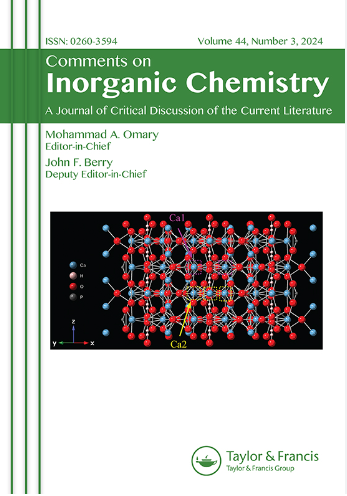硝酸(HNO3)氧化过程中产生一氧化氮(NO)和二氧化氮(NO2)的机理研究
IF 3.8
3区 化学
Q1 CHEMISTRY, INORGANIC & NUCLEAR
引用次数: 1
摘要
在硝酸(HNO3)氧化过程中,如金(Au)在王水中的溶解,会产生一氧化氮(NO)和二氧化氮(NO2)的混合物。本文讨论了生产这两种氮氧化物的具体过程。结果表明,在HNO3或王水的溶解过程中,NO2不是HNO3氧化的直接产物。同时解释了在这些过程中,总是由HNO3和NO反应产生NO2。进一步从热力学计算的角度讨论了HNO3浓度的影响。图形抽象本文章由计算机程序翻译,如有差异,请以英文原文为准。
An Investigation of How Nitrogen Monoxide (NO) and Nitrogen Dioxide (NO2) Are Produced in Oxidations by Nitric Acid (HNO3)
ABSTRACT In oxidations by nitric acid (HNO3), such as the dissolution of gold (Au) in aqua regia, mixtures of nitrogen monoxide (NO) and nitrogen dioxide (NO2) are produced. In this article, the exact processes through which these two nitrogen oxides are produced were discussed. It was shown that in the processes of dissolution in HNO3 or aqua regia, NO2 is never a direct product of oxidations by HNO3. It was also explained that in such processes, NO2 is always produced from HNO3 and NO reacting. Further, the effect of the concentration of HNO3 was discussed in light of thermodynamic calculations. Graphical Abstract
求助全文
通过发布文献求助,成功后即可免费获取论文全文。
去求助
来源期刊

Comments on Inorganic Chemistry
化学-无机化学与核化学
CiteScore
9.00
自引率
1.90%
发文量
18
审稿时长
>12 weeks
期刊介绍:
Comments on Inorganic Chemistry is intended as a vehicle for authoritatively written critical discussions of inorganic chemistry research. We publish focused articles of any length that critique or comment upon new concepts, or which introduce new interpretations or developments of long-standing concepts. “Comments” may contain critical discussions of previously published work, or original research that critiques existing concepts or introduces novel concepts.
Through the medium of “comments,” the Editors encourage authors in any area of inorganic chemistry - synthesis, structure, spectroscopy, kinetics and mechanisms, theory - to write about their interests in a manner that is both personal and pedagogical. Comments is an excellent platform for younger inorganic chemists whose research is not yet widely known to describe their work, and add to the spectrum of Comments’ author profiles, which includes many well-established inorganic chemists.
 求助内容:
求助内容: 应助结果提醒方式:
应助结果提醒方式:


